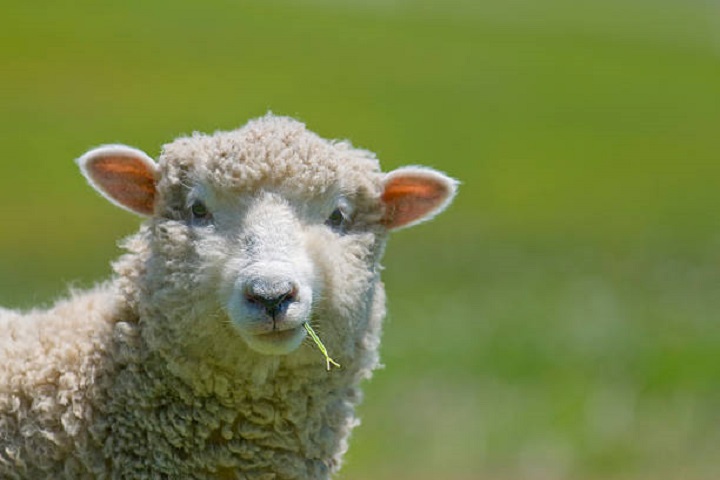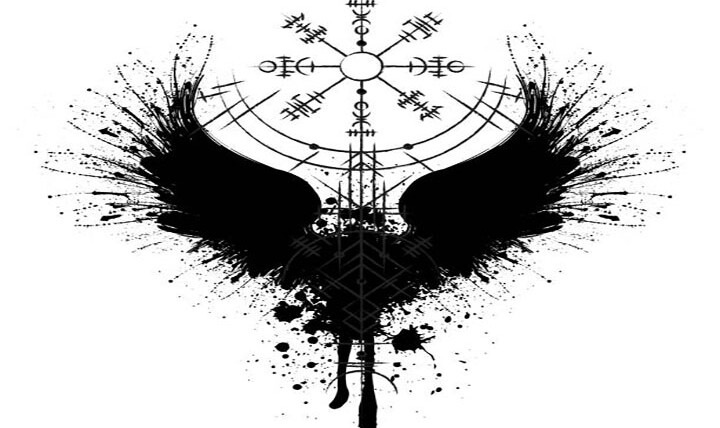Sheep are often seen as gentle, docile creatures, grazing peacefully in pastures or being herded by shepherds. But beyond their physical appearance and behavior, there is a deeper significance to these animals. In many cultures and religions, sheep hold a special spiritual meaning, symbolizing qualities such as innocence, obedience, and sacrifice.
These gentle guardians have been referenced throughout history in various forms, and understanding their meaning can offer valuable insights into our own lives and spirituality. In this blog post, we will explore the spiritual meaning of sheep and the lessons they can teach us.
Key Takeaways
- Sheep have a deeper spiritual meaning in many cultures and religions, symbolizing innocence, obedience, and sacrifice. By embracing their symbolism, we can gain valuable insights into our own lives and spirituality.
- Sheep represent innocence and purity, reminding us to embrace simplicity and authenticity in our thoughts and actions.
- The obedience of sheep teaches us the importance of surrendering ourselves to a higher power or divine guidance, trusting in the path that is laid out for us.
- Sheep symbolize sacrifice, reminding us of the power of selflessness and giving for the greater good.
- Understanding and embracing the spiritual meaning of sheep can guide us on our spiritual journey, inspiring us to live a more authentic, obedient, and compassionate life.
The Spiritual Meaning of Sheep
Sheep hold a profound spiritual significance that transcends their physical attributes and behaviors. Across various cultures and religious traditions, these creatures are emblematic of virtues such as innocence, obedience, and sacrifice. Exploring the spiritual connotations associated with sheep provides us with meaningful perspectives on our personal lives and spirituality.
Delving into the spiritual symbolism of sheep yields several key insights:
1. Innocence and Purity: Sheep serve as symbols of innocence and purity, urging us to embrace simplicity and authenticity in both our thoughts and actions. They act as gentle reminders to release negativity and strive for purity in our daily lives.
2. Obedience and Surrender: The inherent obedience of sheep imparts a lesson on the significance of surrendering ourselves to a higher power or divine guidance. Much like the trust sheep place in their shepherds, we too can cultivate trust in a higher power to lead us along our spiritual journey.
3. Sacrifice and Selflessness: Sheep embody the concept of sacrifice, prompting contemplation on the potency of selflessness and contributing to the greater good. They teach us the value of prioritizing others over ourselves and making sacrifices for the betterment of our communities.
4. Guidance and Trust: Sheep serve as a reminder to place trust in higher wisdom and guidance. Through relinquishing control and placing confidence in the path ahead, we can discover tranquility and fulfillment in our spiritual endeavors.
5. Inspiration and Compassion: A comprehension and acceptance of the spiritual symbolism linked with sheep can serve as a compass for our spiritual journey. These creatures inspire us to lead more authentic, obedient, and compassionate lives.
The spiritual significance of sheep imparts valuable lessons and perspectives into our personal lives and spirituality. By incorporating their symbolism into our understanding, we can foster qualities such as innocence, obedience, and selflessness. Let us pause for a moment to reflect on the profound spiritual meaning encapsulated by sheep and allow their wisdom to illuminate our spiritual paths.

The Symbolism of Sheep
Throughout the annals of history, sheep have consistently held profound symbolic significance across diverse cultures and religious traditions. The essence of sheep symbolism revolves around their virtues of innocence, obedience, and sacrifice. Found in various mythologies and sacred texts, these woolly creatures are depicted as gentle beings embodying purity and simplicity. Their meek demeanor and gentle disposition elevate them to emblems of innocence, urging individuals to reconnect with their childlike attributes and aspire towards purity in both thought and deed.
Sheep, in their symbolism, also embody the concept of obedience. Renowned for their steadfast loyalty and unwavering compliance with the directives of their shepherds, they serve as potent symbols advocating the surrender of oneself to higher powers or divine guidance. Much like the trust sheep place in their shepherds for guidance to safety and sustenance, this symbolism encourages individuals to place their trust in a higher power, allowing it to steer them along their spiritual journey.
Furthermore, sheep carry the weight of symbolism associated with sacrifice. Across numerous religious traditions, sheep have been presented as offerings, symbolizing devotion and seeking divine favor. This symbolism acts as a poignant reminder of the significance of selflessness and altruism in our lives. It imparts the lesson of prioritizing the welfare of others, making sacrifices for the greater good, and understanding the profound value in acts of giving.
In summation, the symbolism encapsulated by sheep is intricate and laden with profound meaning. It furnishes us with invaluable insights into our personal lives and spiritual journeys. By unraveling and embracing the symbolic depth of sheep, we glean crucial lessons on innocence, obedience, and sacrifice, providing a compass to navigate our individual paths of spiritual growth.

Interpretation of Seeing Sheep in Dreams
Dreams serve as gateways to the depths of the subconscious, offering glimpses into a realm that transcends the conscious mind. Interpreting dreams featuring sheep involves exploring nuanced elements that convey profound messages.
Here are five focal points elucidating the significance of encountering sheep in dreams:
1. Symbolism of Innocence and Purity: Witnessing sheep in the dream realm can symbolize an innate connection to innocence and purity. This may signal a yearning to embody these qualities, fostering a desire to relinquish negativity and embrace a more authentic and genuine existence.
2. Messages of Obedience and Surrender: Dreams involving sheep often convey messages of obedience and surrender. Much like the trust sheep place in their shepherds, such dreams may encourage relinquishing control, placing trust in a higher power, or embracing divine guidance to navigate life’s intricate path.
3. The Need for Selflessness and Sacrifice: Sheep are emblematic of sacrifice, prompting contemplation on the significance of selflessness for the greater good. Dreaming of sheep may serve as a call to assess areas of life where acts of sacrifice can contribute to the welfare of others or the community.
4. Connection to Spirituality: Dreams featuring sheep unfold as potent symbols in one’s spiritual journey. They may indicate a profound need to reconnect with one’s spiritual self, seeking wisdom from a higher source, and deepening the ties to spiritual practices or beliefs.
5. Nurturing and Protection: The gentle and nurturing nature of sheep, as depicted in dreams, may signify a yearning for nurturing and protection in waking life. This could be a gentle reminder to prioritize self-care, create a secure and nurturing environment, or seek support and guidance from those around.
It’s essential to recognize the deeply personal nature of dreams, where interpretations can vary based on individual experiences. Trusting one’s intuition and emotions becomes crucial in deciphering the unique messages embedded in dreams featuring sheep. Pay attention to distinct emotions or symbols that resonate, allowing for an exploration of the profound meanings concealed within these dream encounters.
Also Check – Stepping in Dog Poop: Unveiling its Spiritual Significance and Symbolism
Sheep as a Spirit Animal
Sheep have a long history intertwined with spiritual symbolism, often representing a profound connection as a spirit animal for some individuals. Their symbolism imparts unique energy and guidance to our lives.
Here are five essential considerations when delving into the role of sheep as a spirit animal:
1. Embracing Innocence and Purity: Sheep, as a spirit animal, prompt us to rediscover our own innocence and purity. They advocate for releasing past traumas and negative experiences, urging us to approach life with a renewed outlook. By embracing the purity and innocence embodied by sheep, we can discover an inner sense of peace and serenity.
2. Surrendering and Trusting: Similar to how sheep place trust in their shepherds, the spirit of sheep teaches us the significance of surrendering and trusting in a higher power. They guide us to relinquish control, allowing divine guidance to lead our spiritual journey. Surrendering to the wisdom of the universe provides clarity, purpose, and inner peace.
3. Nurturing and Protecting: Sheep as a spirit animal underscore the importance of nurturing and protecting ourselves and those around us. They inspire the creation of a safe, nurturing environment for personal growth. Additionally, they advocate for safeguarding inner peace and well-being, establishing boundaries when necessary.
4. Connecting with Unity and Community: Recognized for their strong flocking instinct, sheep as a spirit animal emphasize the strength found in unity and community. They prompt us to foster strong bonds with others, finding support and strength in like-minded individuals. Through connection with others, spiritual growth is amplified, and a sense of belonging is experienced.
5. Balancing Gentleness and Strength: Sheep embody both delicacy and quiet strength. As a spirit animal, they encourage finding equilibrium between these qualities in our lives. Embracing our gentle nature while tapping into inner strength and resilience enables us to navigate life’s challenges with grace and authenticity.
Sheep, as spirit animals, provide valuable lessons and guidance on our spiritual journey. Incorporating their energy and qualities into our lives fosters greater peace, trust, and connection. Embrace the gentle and wise nature of the sheep, allowing them to illuminate your spiritual path.
Different Cultural and Traditional Perspective About Sheep
Across diverse cultures worldwide, sheep have garnered profound significance, seamlessly woven into the tapestry of belief systems and practices. A myriad of captivating perspectives on sheep emerges from various cultural and traditional backgrounds:
1. Ancient Egyptian Symbolism: Within the intricate fabric of ancient Egyptian culture, sheep occupied a prominent position. Symbolizing fertility, abundance, and prosperity, these woolly creatures found their place in ancient Egyptian art and religious ceremonies, often offered as sacred gifts to appease the gods.
2. Biblical References: The Bible, a repository of wisdom and allegory, recurrently features sheep as symbols of innocence, obedience, and sacrifice. Christianity draws upon the metaphor of Jesus as the “Good Shepherd,” portraying him as the guiding and protective force for his flock. The biblical imagery of sheep and shepherds serves as a poignant representation of the profound relationship between God and His devoted followers.
3. Islamic Rituals: In the rich tapestry of Islamic traditions, sheep assume a pivotal role, notably during the festive observance of Eid al-Adha. This celebration commemorates Abraham’s willingness to sacrifice his son as an expression of unwavering obedience to God. Muslims symbolically emulate this act by sacrificing sheep, distributing the meat amongst the less fortunate, embodying the virtues of selflessness and generosity.
4. Navajo Beliefs: Within Navajo culture, sheep transcend the mundane and are held as sacred beings possessing deep spiritual significance. Bestowed with the power to bridge the realms of the physical and the spiritual, sheep are believed to bring blessings, protection, and abundance to the Navajo communities.
5. Tibetan Buddhism: In the serene realm of Tibetan Buddhism, the image of a tranquil white sheep serves as a powerful symbol of purity and awakened consciousness. Sheep are synonymous with compassion, kindness, and non-violence, with their wool finding purpose in the creation of sacred objects like prayer flags, embodying the spiritual essence of Tibetan Buddhism.
These glimpses into diverse cultural perspectives merely scratch the surface of the multifaceted role sheep play. While interpretations may vary, the consistent themes of innocence, obedience, sacrifice, and protection resonate across cultures, offering profound insights into the spiritual and symbolic dimensions of these gentle guardians. These cultural narratives serve as a poignant reminder of the universal truths encapsulated by these benevolent creatures.

Sheep’s Gifts of Innocence and Serenity
Sheep grace us with a profound offering—the gifts of innocence and serenity. These gentle stewards of the land serve as a reminder of life’s pure and uncomplicated pleasures. In their presence, we can reconnect with our own innocence and rediscover a sense of childlike wonder.
Observing sheep as they peacefully graze in the pasture prompts reflection on the beauty of simplicity. They find contentment in the most basic joys— the sensation of grass beneath their hooves, the embrace of the sun on their backs. Their tranquil existence encourages us to decelerate and savor the small moments that bring us joy.
The sheep’s innocence is further evident in their trusting nature. Unburdened by past grievances or future anxieties, they fully inhabit the present, placing faith in the inherent goodness of their surroundings. Embracing our own innocence becomes a pathway to releasing past traumas and worries, paving the way for a serene and peaceful state of mind.
The palpable serenity embodied by sheep emanates from their gentle nature and tranquil presence. Even the most unsettled souls can find solace in their company, experiencing a temporary escape from the daily chaos and a connection with a profound sense of inner peace.
By embracing the bestowed gifts of innocence and serenity from sheep, we can learn to navigate our lives with a lighter spirit and a clearer mind. Tapping into their essence allows us to encounter a profound sense of peace, joy, and tranquility that can positively influence our overall well-being. Let us take a moment to express gratitude for these gentle custodians and permit their gifts to illuminate our own spiritual journey.
Flock’s Adaptation: How Sheep Thrive in Challenging Environments
Sheep, characterized by their soft, woolly coats and serene disposition, might give the impression of fragility. Nonetheless, these amiable guardians possess a remarkable capacity to acclimate and flourish in demanding surroundings. Whether confronted with adverse weather conditions, rugged terrains, or limited resources, sheep have developed distinctive strategies and behaviors that enable them to surmount obstacles and ensure their survival.
The following elucidates five pivotal aspects of the flock’s adaptation and how sheep excel in challenging environments:
1. Insulating Woolly Coats: A well-documented adaptation of sheep lies in their insulating woolly coats. This dense layer of wool functions as a thermal shield, preserving warmth during cold weather and shielding them from extreme temperatures. Additionally, it serves as a natural deterrent against predators, heightening the difficulty of attacks.
2. Flocking Dynamics: Sheep are renowned for their flocking behavior, sticking closely together in groups. This behavior operates as a defense mechanism against predators. By maintaining a cohesive group, sheep augment their ability to detect predators and swiftly respond to protect themselves.
3. Adapted Grazing Habits: To endure challenging environments, sheep have modified their grazing habits. They can consume a variety of vegetation, including coarse and nutrient-poor grasses. Their specialized digestive system facilitates efficient nutrient extraction from low-quality forage, allowing them to thrive where other animals might struggle to find sustenance.
4. Water-Saving Techniques: In arid regions, sheep have evolved effective water conservation techniques. They can abstain from drinking water for extended periods by extracting moisture from the plants they consume. Furthermore, their kidneys exhibit high efficiency in conserving water, minimizing water loss through urine.
5. Evasion Tactics: Confronted with potential threats, sheep have developed evasive abilities. Possessing keen senses such as exceptional peripheral vision and acute hearing, they can detect danger from a distance. If danger is sensed, they promptly flee or scatter in various directions, complicating a predator’s attempt to single out an individual sheep.
The flock’s adeptness at adapting to challenging environments underscores the resilience and ingenuity of these genial guardians. Their ability to thrive in harsh conditions serves as a poignant reminder of the strength and resourcefulness inherent in each of us. Much like sheep adapt and overcome, we, too, can draw upon our innate abilities to navigate life’s challenges. Embracing their strategies and behaviors provides inspiration and guidance for overcoming obstacles, fostering a life characterized by resilience and flourishing.

Conclusion
In exploring the spiritual meaning of sheep, we have delved into the deeper significance of these gentle creatures. Throughout history, sheep have held a special place in various cultures and religions, symbolizing qualities such as innocence, obedience, and sacrifice. By understanding the spiritual significance of sheep, we gain valuable insights into our own lives and spirituality.
Sheep represent innocence and purity, reminding us to embrace these virtues in our own thoughts and actions. Their gentle nature teaches us the value of simplicity and authenticity.
Furthermore, their unquestioning obedience reminds us to surrender ourselves to a higher power or divine guidance. Just as sheep trust their shepherds, we too can trust in a higher power to lead us on our spiritual journey.
Additionally, sheep symbolize sacrifice, whether in religious traditions or through acts of kindness towards others. This symbolism encourages us to be selfless and prioritize the greater good. By embracing the spiritual meaning of sheep, we can find inspiration to live a more authentic, obedient, and compassionate life.
So let us look to these gentle guardians and embrace the lessons they offer us. May we remember to nurture our own innocence and purity, trust in a higher power, and practice selflessness in our daily lives. The spiritual meaning of sheep serves as a guiding light on our own spiritual paths, offering wisdom and insight that can transform our lives for the better.
Frequently Asked Questions
Q: Are sheep really as innocent and obedient as they are often portrayed?
A: Yes, sheep do possess qualities of innocence and obedience. They are gentle and peaceful animals, often grazing peacefully in pastures. Their behavior reflects their innocence and their willingness to follow the guidance of their shepherds. However, it’s important to note that this portrayal does not mean that sheep lack intelligence or individual personalities. While they may have a gentle nature, they still possess their own unique traits and preferences.
Q: Can sheep be aggressive or dangerous?
A: In general, sheep are not known to be aggressive or dangerous animals. They are docile and tend to flee when they perceive a threat. However, like any animal, if they feel cornered or threatened, they may react defensively. It’s important to approach sheep with caution and respect, especially when they are guarding their young or when they are in an unfamiliar or stressful environment.
Q: How can I incorporate the symbolism of sheep into my daily life?
A: There are many ways to incorporate the symbolism of sheep into your daily life. You can start by embracing qualities such as innocence, simplicity, and authenticity. Focus on cultivating a gentle and peaceful nature, both in your thoughts and actions. Practice obedience to a higher power or divine guidance by surrendering control and trusting in the path laid out for you. You can also embody the selflessness and sacrifice symbolized by sheep by finding ways to serve others and contribute to the greater good. Additionally, seek inspiration and guidance from the spiritual meaning of sheep in your own spiritual journey, allowing their wisdom to guide you towards a more authentic and compassionate life.
Q: Can I have a sheep as a pet?
A: While sheep can be kept as pets, they require special care and considerations. Sheep are herd animals, so they thrive in the company of other sheep and may become stressed or lonely if kept alone. They also require sufficient space for grazing, access to fresh water, and proper nutrition. Additionally, sheep need regular grooming, including shearing their wool. Before considering a sheep as a pet, it’s important to research local regulations, consult with experts, and ensure that you have the necessary resources and knowledge to provide for their well-being.








